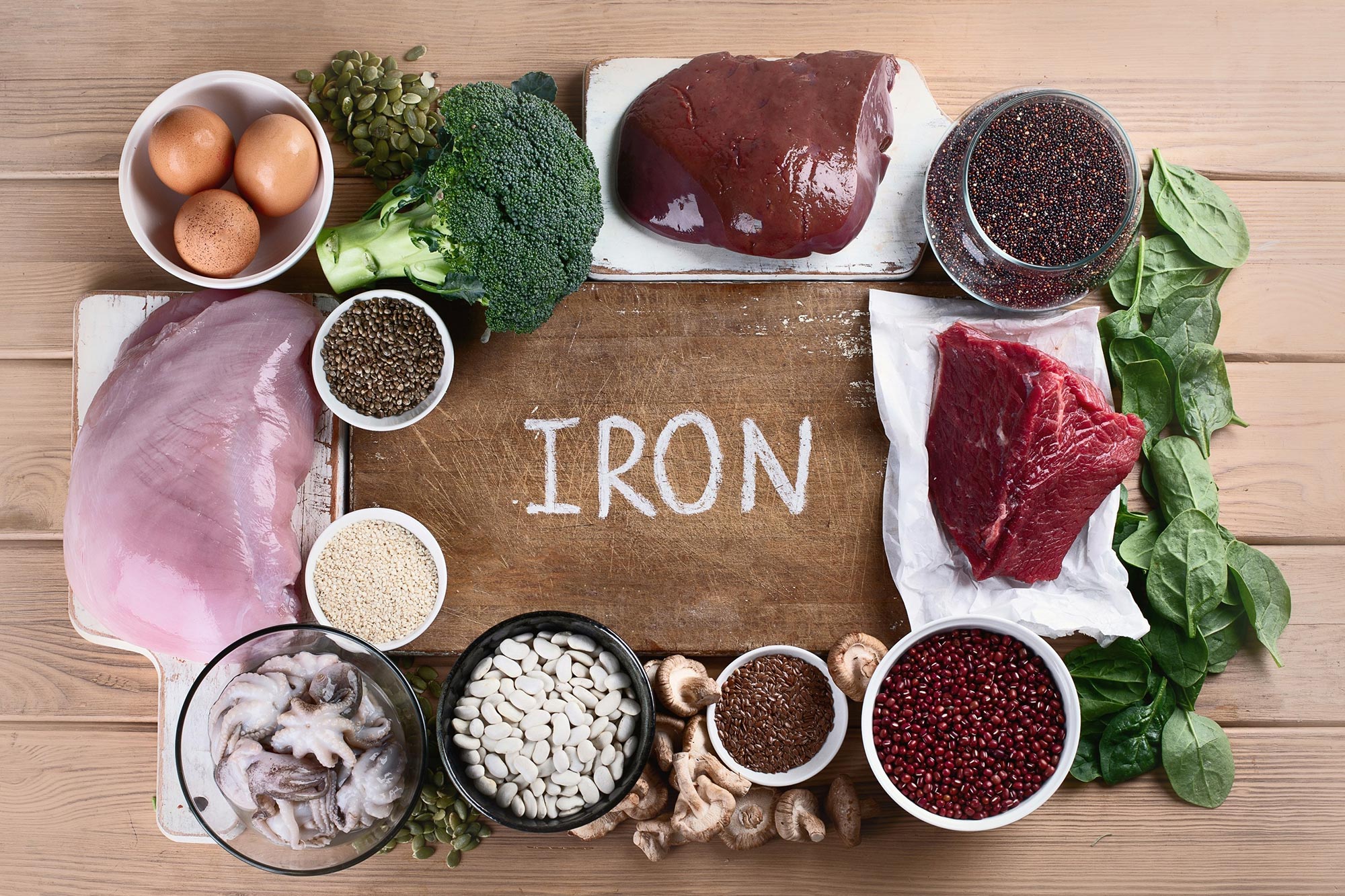
Are you lacking in energy? Are you sick of feeling tired all the time? Have you been diagnosed with some form of anemia? If you answered any of the previous questions in the affirmative, you should take a supplement and purposely include more iron in your diet. Anemic people require between one hundred and two hundred milligrams of iron per day. Here you can find out what to eat and drink to include more iron in your diet and restore your energy levels.
Red Meat
If you want to get more iron in your diet and are not vegan or vegetarian, eat red meat at least twice a week. Both lamb and beef are reliable sources of iron. Pork also contains iron. How much iron is in red meat? A one hundred gram serving of beef provides 15% of the recommended daily amount of iron. Red meat will also supply your body with other essential nutrients such as B vitamins, protein, selenium, and zinc.

Beef and chicken liver are an excellent source of iron, as well as folate, iron, vitamin A, vitamin B, and copper.
Liver
Not everybody can tolerate the taste of liver. However, if you like liver and are also deficient in iron, you should eat more of it. One hundred grams of pig liver will supply you with more than thirty percent of the recommended daily amount of iron.
Chicken
Chicken is also high in iron, with the more flavorful dark meat providing a little more. If you only eat white meat, that’s fine too, as lean cuts of chicken will still get the iron you need. A three-and-a-half-ounce serving of light meat chicken will provide you with about six percent of the recommended daily iron intake, while the same amount of dark meat will net you 7 percent.
Tofu
If you are a vegan, consider eating more tofu to up your iron intake. Different brands of tofu have varying levels of iron. However, tofu generally has more iron than a serving of red meat. Half a cup of tofu contains around three milligrams of non-heme iron.

Kale is an excellent source of vitamins and minerals, including iron, which is why many consider it a superfood.
Kale
Like liver, kale is a bit of an acquired taste. Yet if you like kale, you should certainly include it in your diet if you need to ingest more iron. Raw kale contains around 1.47 milligrams of iron per 100-gram cup. Kale is an excellent source of iron for vegans and vegetarians.
Spinach
Spinach is another wonderfully healthy food that contains a lot of iron. A one-hundred-gram cup of spinach contains approximately 2.7 milligrams of iron, around fifteen percent of the recommended daily amount.

Lentils are loaded with iron, as well as being a great source of protein and fiber.
Lentils and Beans
Just one cup of lentils contains more than thirty-five percent of the amount of iron adults ought to consume daily. Black beans and kidney beans are full of iron, too. If you do not eat meat or fish, make sure your diet contains beans and lentils to maintain adequate iron levels.
Dried Fruit
Dried fruit is iron-packed, too. Although it doesn’t contain as much iron as some of the other types of food mentioned in this article, eating dried fruit can help you get your recommended daily intake without ingesting too much protein. One hundred grams of dried fruit contains 0.8 milligrams of iron.

Asparagus is a good source of iron, vitamin c, and dietary fiber.
Asparagus
Asparagus is another super source of iron for vegetarians, vegans, and people who avoid eating a lot of meat for health reasons. It contains 2.14 mg of iron per one hundred grams.
Beetroot Juice
Do you like the taste of beetroot juice? If so, you should drink it if you have an iron deficiency. Beetroot juice is the perfect drink for those in need of iron and vitamin C. Drinking beetroot juice is an excellent way to improve the hemoglobin level in your blood.

Most people know prune juice is loaded with fiber, but it also is a good source of iron.
Prune Juice
Four liquid ounces of prune juice have 1.5 milligrams of iron. Prunes are also high in fiber, so people consume them to help cure constipation or ensure regular bowel movements. To restore your iron levels, drink delicious prune juice each day.
Vitamin C
To combat anemia, make sure you also ingest vitamin C when consuming food or beverages rich in iron. Vitamin C aids the absorption of iron.
Food And Drinks to Avoid
To maximize your iron intake, avoid food and beverages that lower its levels. Food and drinks that can lower your iron levels include black tea, coffee, dairy products, milk, grapes, corn, parsley, chocolate, and peanuts.
More Energy
If you decide to amend your diet to include more of the food and drinks you have read about here, you will slowly but surely increase your iron levels and recover from anemia. As a result, you will have more energy and feel less tired. You will also find it easier to do everyday activities without feeling dizzy, getting out of breath, or experiencing disconcerting heart palpitations. Getting enough iron in your diet will improve your overall health and quality of life.



0Comments